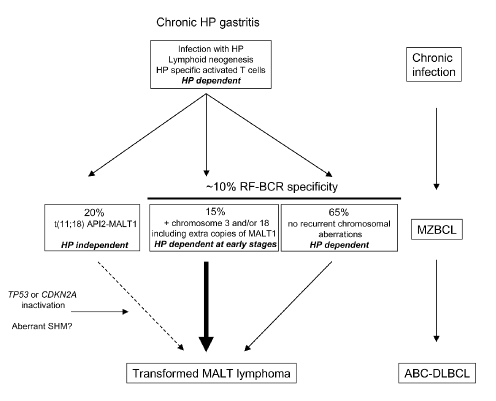Figure 3.
Scenarios of multistep development of gastric MZBCL. Chronic H. pylori (HP) infection induces lymphoid tissue neogenesis. As a result of both direct and indirect stimulation infiltrating B cells will undergo active proliferation. Direct antigenic stimulation can be accomplished by auto-Ags like IgG-containing immune complexes, by bacterial or other, unknown, Ags. Indirect stimulation is provided by H. pylori-specific T cells. Due to the acquisition of genetic damage, B cells may obtain growth advantage. Gastric MZBCL with t(11;18) grow autonomously, do not respond to H. pylori eradication, but rarely progress to DLBCL. Gastric MZBCL with trisomy 3 and/or 18 and/or having extra copies of the MALT gene have a more aggressive clinical behavior. Following inactivation of the tumor suppressor genes TP53 or CDKN2A or due to mutation in oncogenes, possibly by aberrant SHM, MZBCL may transform to DLBCL.

